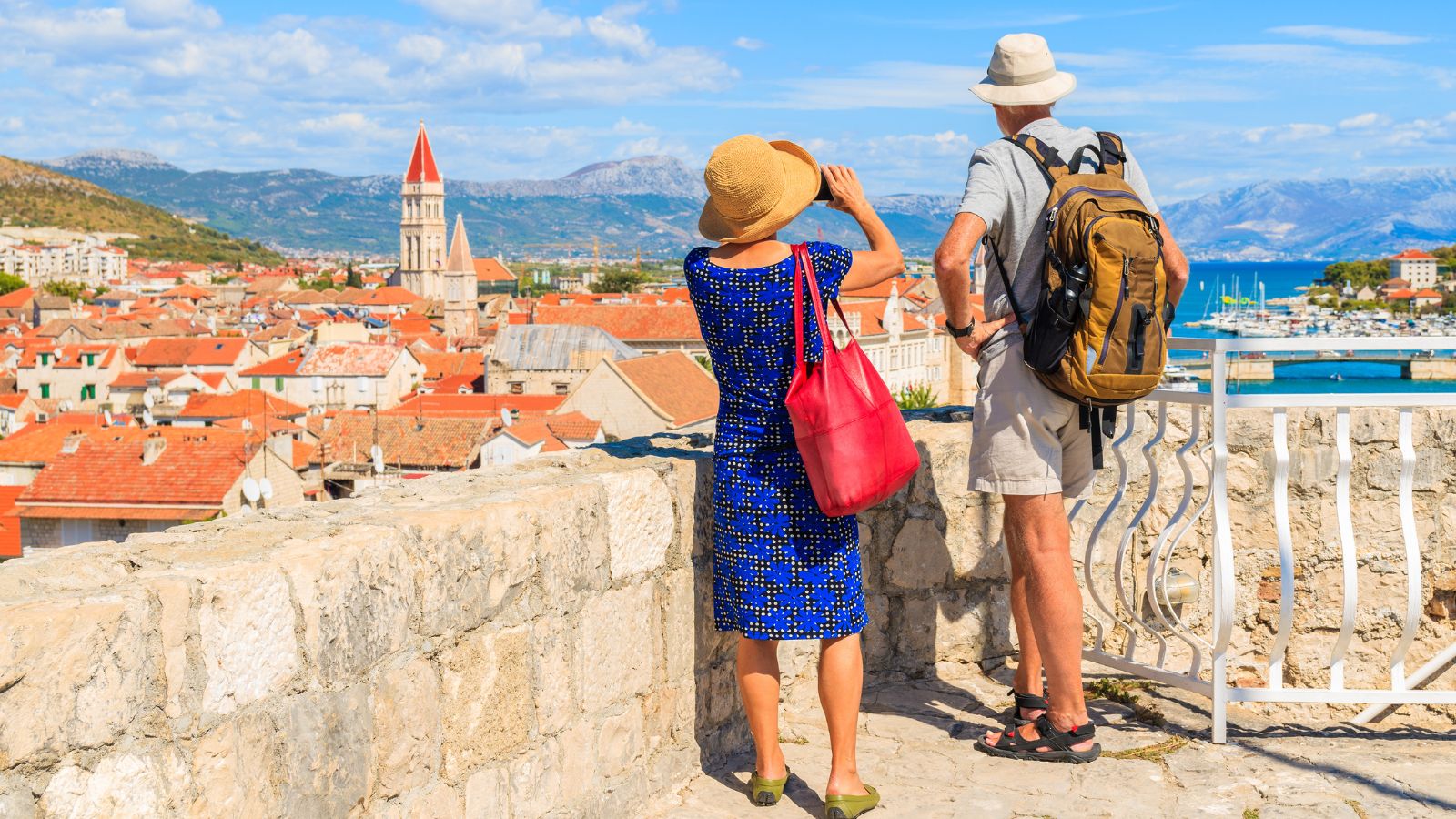Senior travel companies are experiencing a surge in demand, driven by an aging population with increased disposable income and a desire for enriching travel experiences. This burgeoning market presents unique opportunities and challenges for businesses catering to the specific needs and preferences of older travelers. Understanding the demographics, desires, and concerns of this demographic is crucial for success in this sector.
This analysis delves into the diverse landscape of senior travel companies, examining their business models, marketing strategies, and the essential services they provide. We will explore how technology is transforming the senior travel experience and discuss future trends shaping this dynamic industry. Case studies of successful companies will highlight best practices and key elements contributing to their achievements.
Defining the Senior Travel Market
The senior travel market, encompassing individuals aged 55 and above, represents a significant and rapidly growing segment within the global tourism industry. This demographic is characterized by increased disposable income, more leisure time, and a desire for enriching experiences, making them a highly valuable target for travel companies. Understanding their unique needs and preferences is crucial for success in this sector.The demographics of this market are diverse, reflecting the broader aging population.
While the “traditional” senior traveler might be imagined as a retired couple, the reality is far more nuanced. The market includes active retirees pursuing adventure travel, single travelers seeking companionship and new experiences, multigenerational families traveling together, and even individuals still in the workforce taking advantage of extended vacations. This heterogeneity necessitates a tailored approach to marketing and service provision.
Senior Traveler Needs and Desires
Senior travelers prioritize comfort, convenience, and accessibility above all else. This translates into a demand for well-organized tours with minimal physical exertion, accessible accommodations, and clear and concise communication. Beyond the practicalities, they seek enriching experiences that cater to their interests, whether it be cultural immersion, historical exploration, or relaxation in a luxurious setting. Many also value opportunities for social interaction and the chance to connect with like-minded individuals.
For example, a tour focusing on historical sites with comfortable transportation and readily available assistance would be highly appealing, as would a cruise offering a variety of onboard activities and social events.
Comparison with Other Travel Segments
Compared to other travel segments, senior travel often prioritizes slower paces and less strenuous activities. While younger travelers might embrace backpacking trips or adventurous excursions, seniors often prefer guided tours, comfortable accommodations, and readily available support. Family travel, while sharing some similarities (e.g., a focus on shared experiences), differs in the specific needs and desires. Family travel frequently involves childcare considerations and catering to a wider range of ages and abilities, whereas senior travel focuses on the specific needs and preferences of older adults.
Luxury travel, while sharing the emphasis on comfort and high-quality service, differs in the type of experiences sought. Senior travelers may prioritize relaxation and cultural immersion, while luxury travel can encompass a broader range of experiences, including adventure and extreme sports.
Challenges and Opportunities in the Senior Travel Market
The senior travel market presents both unique challenges and significant opportunities. Challenges include addressing accessibility concerns, managing health issues that may arise during travel, and catering to diverse interests and preferences within a broad age range. Opportunities lie in the growing size and spending power of this demographic, combined with their desire for high-quality, enriching experiences. Companies that effectively address the specific needs and desires of senior travelers, providing accessible and tailored travel options, are well-positioned for success.
For instance, a company offering customizable itineraries that allow seniors to choose activities based on their physical capabilities and interests, alongside comprehensive travel insurance and 24/7 support, would tap into this market’s potential effectively.
Marketing and Sales Strategies for Senior Travel Companies

Reaching the lucrative senior travel market requires a nuanced understanding of this demographic’s unique needs and preferences. Successful marketing and sales strategies must resonate with their values, address their concerns, and leverage the channels they actively utilize. This involves more than simply offering discounts; it requires building trust and demonstrating a genuine commitment to providing exceptional travel experiences tailored to their specific requirements.
Targeting a Specific Senior Demographic: The Active Adventurer
A targeted marketing campaign focusing on the “active adventurer” segment of the senior market—individuals aged 65-79 who remain physically active and desire enriching travel experiences—could prove highly effective. This campaign could showcase trips emphasizing moderate physical activity, such as guided walking tours in culturally rich destinations like Tuscany or exploring national parks with accessible trails. Marketing materials would feature vibrant imagery of seniors actively engaging in these activities, highlighting the sense of accomplishment and camaraderie.
The messaging would emphasize the ease and accessibility of the tours, addressing potential concerns about physical limitations. For instance, a brochure might showcase a tour with options for varying levels of activity, or highlight the presence of support staff throughout the journey.
Successful Marketing Strategies Employed by Senior Travel Companies
Several senior travel companies have successfully employed strategies focusing on building trust and personalized service. For example, companies specializing in river cruises often utilize testimonials from past senior travelers, highlighting their positive experiences and addressing common concerns about accessibility and safety. Another successful strategy involves partnering with trusted organizations, such as AARP, to build credibility and reach a targeted audience.
This partnership often involves co-branded marketing materials and access to the organization’s member database. Furthermore, many companies offer personalized consultation services, allowing potential clients to discuss their specific needs and preferences with a travel specialist before committing to a trip. This personalized approach fosters a sense of trust and confidence.
The Role of Social Media in Marketing to Senior Travelers
While some might assume seniors are less engaged with social media, platforms like Facebook and Instagram offer valuable opportunities to reach this demographic. However, the approach must be tailored. Instead of relying on trendy short-form video content, high-quality photographs and videos showcasing stunning destinations and emphasizing the ease and comfort of the travel experience are more effective.
Furthermore, Facebook groups dedicated to senior travel and retirement communities provide targeted advertising opportunities. Engaging content that focuses on sharing travel tips, destination guides, and stories from past travelers can foster community engagement and build brand loyalty. The use of clear, large fonts and easy-to-navigate websites are crucial for accessibility.
Effective Sales Techniques for Senior Travel Products, Senior travel companies
Effective sales techniques for senior travel products prioritize building rapport and understanding individual needs. This involves active listening, addressing concerns about cost and health, and offering flexible payment options. Personalized itineraries, emphasizing ease and convenience, are highly desirable. Providing detailed information about accessibility features, such as wheelchair access or assistance with luggage, is crucial. Furthermore, offering a risk-free guarantee or cancellation policy can significantly increase conversion rates, addressing the common anxieties seniors may have about booking a trip.
Finally, providing exceptional customer service before, during, and after the trip is paramount to building loyalty and encouraging repeat business. This could include dedicated phone lines or email support for addressing questions and concerns.
The senior travel market is a vibrant and evolving sector, offering significant potential for growth and innovation. By understanding the unique needs and preferences of senior travelers and leveraging technology effectively, companies can create enriching and memorable travel experiences that cater to this growing demographic. The future of senior travel promises continued expansion, driven by both demographic shifts and advancements in travel technology, creating exciting opportunities for businesses to thrive in this increasingly important market segment.
Obtain recommendations related to armed forces vacation club reviews that can assist you today.

:max_bytes(150000):strip_icc()/senior-group-dining-europe-SENIORGROUPS0321-872276396ec04134a21153aeed044ada.jpg)
